The New NASA Velcro Straps for the Omega Speedmaster Moonwatch (Live Pics)
Space on the wrist!
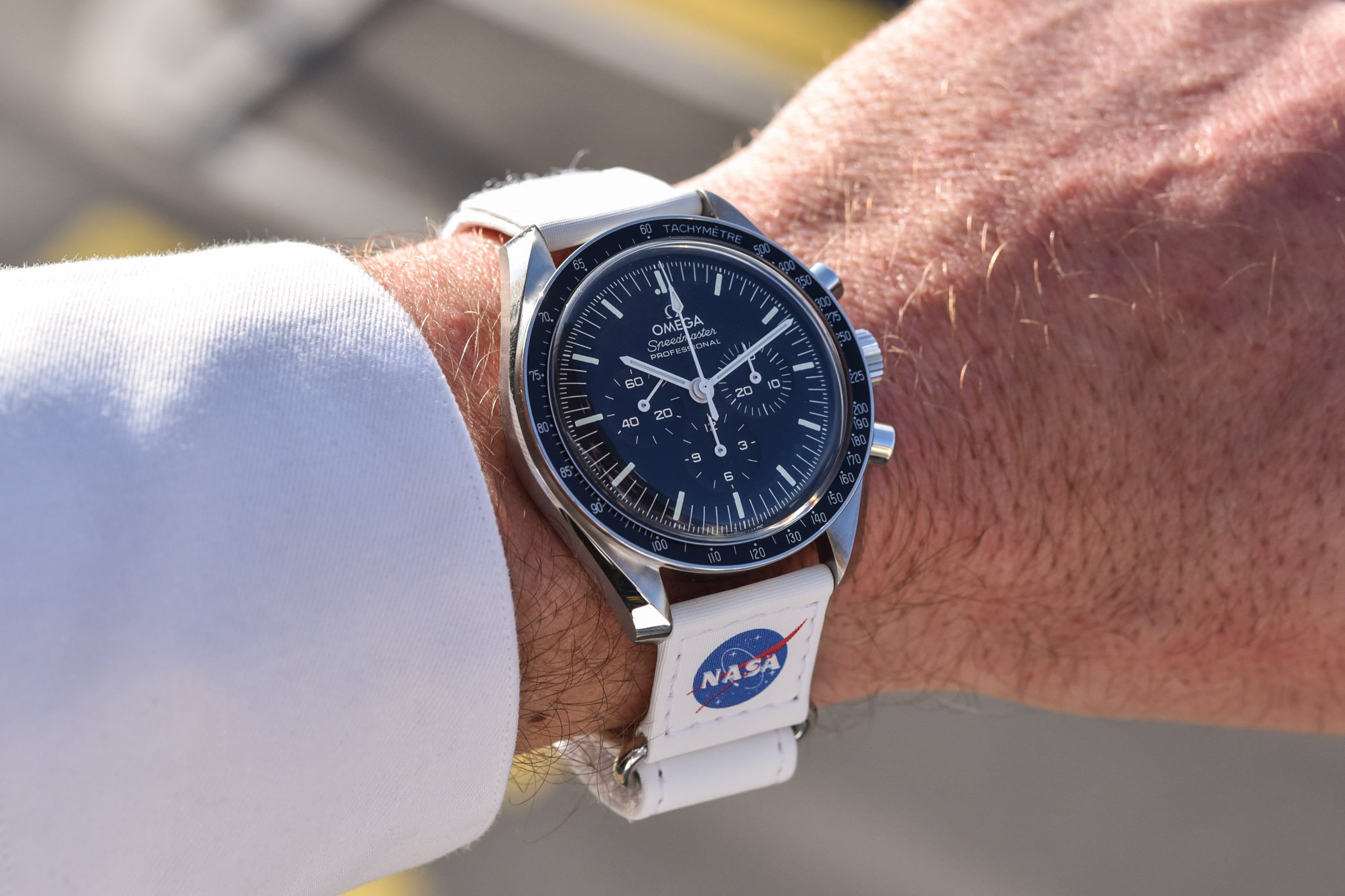
What would be the perfect accessory for your 2021 Omega Speedmaster Moonwatch Master Chronometer? For sure, it would be an OMEGA x NASA Velcro strap, wouldn’t it? Originally intended to be purely functional, allowing astronauts to strap their Speedmasters over their bulky spacesuits, it’s a fan-favourite to complete “the look”. After the updated version of the Omega Speedmaster Professional Chronograph, Omega now launches new Velcro straps to fit your Speedy.
In a celebration of the long-standing legacy between the Swiss watch manufacturer and the American Space Agency (NASA), Omega introduces three new NASA Velcro Straps, ideally suited to go with your Omega Speedmaster Moonwatch. The story of perhaps the most famous watch in history, certainly the most famous Omega watch, needs no explanation.
Briefly put, in 1965 the Omega Speedmaster was certified as the official NASA timing instrument. Four years later, in July 1969, the Omega Speedmaster Professional Chronograph became the first watch on the Moon, worn by Neil Armstrong and Buzz Aldrin during the Apollo 11 Mission. The entire story about the astronaut’s Speedmaster references and how it became the Moonwatch is documented here.
On to the straps. Although the Omega Speedmaster original came on a metal band, such a bracelet wasn’t suited for a space exploration mission. The Velcro strap proved a suitable alternative and is versatile enough to be worn on the wrist or over the bulky sleeve of a spacesuit without too much hassle. The three versions Omega introduces this year are made from durable polyester and come in black, silver or white. Each colour takes inspiration from elements of the NASA space programmes.
The black strap represents the darkness of space and is closest to the actual strap worn by the astronauts who set foot on the Moon. It is also a close match to the black dial of the Omega Speedmaster Moonwatch. Next up is the silver one, perhaps the boldest choice of the three. The silver is taken from the silver space suits worn by astronauts in the pre-Apollo Gemini and Mercury missions. With a bit of imagination, its metallic shine resembles a metal bracelet. Finally, the white strap is a nod to another important chapter in the Moonwatch saga: the Alaska Project. The Alaska Project was a secret programme between Omega and NASA to create a perfect space watch (more on the Alaska Project here). The white Velcro strap honours that very programme.
All straps are sold separately and are 20mm wide from end to end (no taper). On one end you attach the short bit of the strap, adorned with the NASA “meatball” logo and a metal loop. The long part of the strap is attached to the other end and passed through the metal loop to fix the strap in place with a Velcro lining. The straps have the “Speedmaster Moonwatch” logo printed in either white or blue. The flexibility and durability of these straps make them perfect for sports, or perhaps the summer holidays, whenever that’s possible again.
The OMEGA Velcro straps are priced at CHF 190 each and will be available later this year. More information on Omegawatches.com.

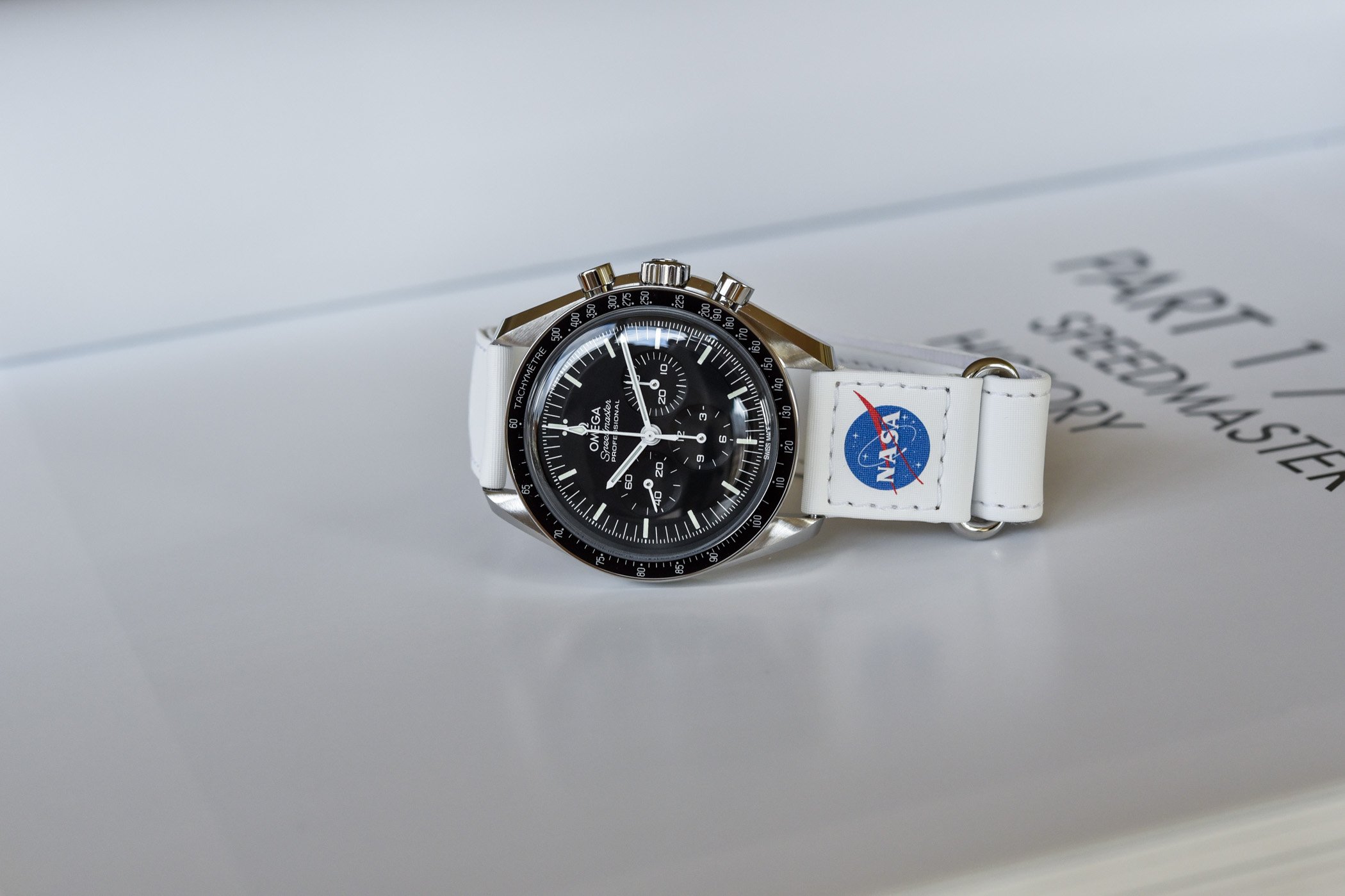
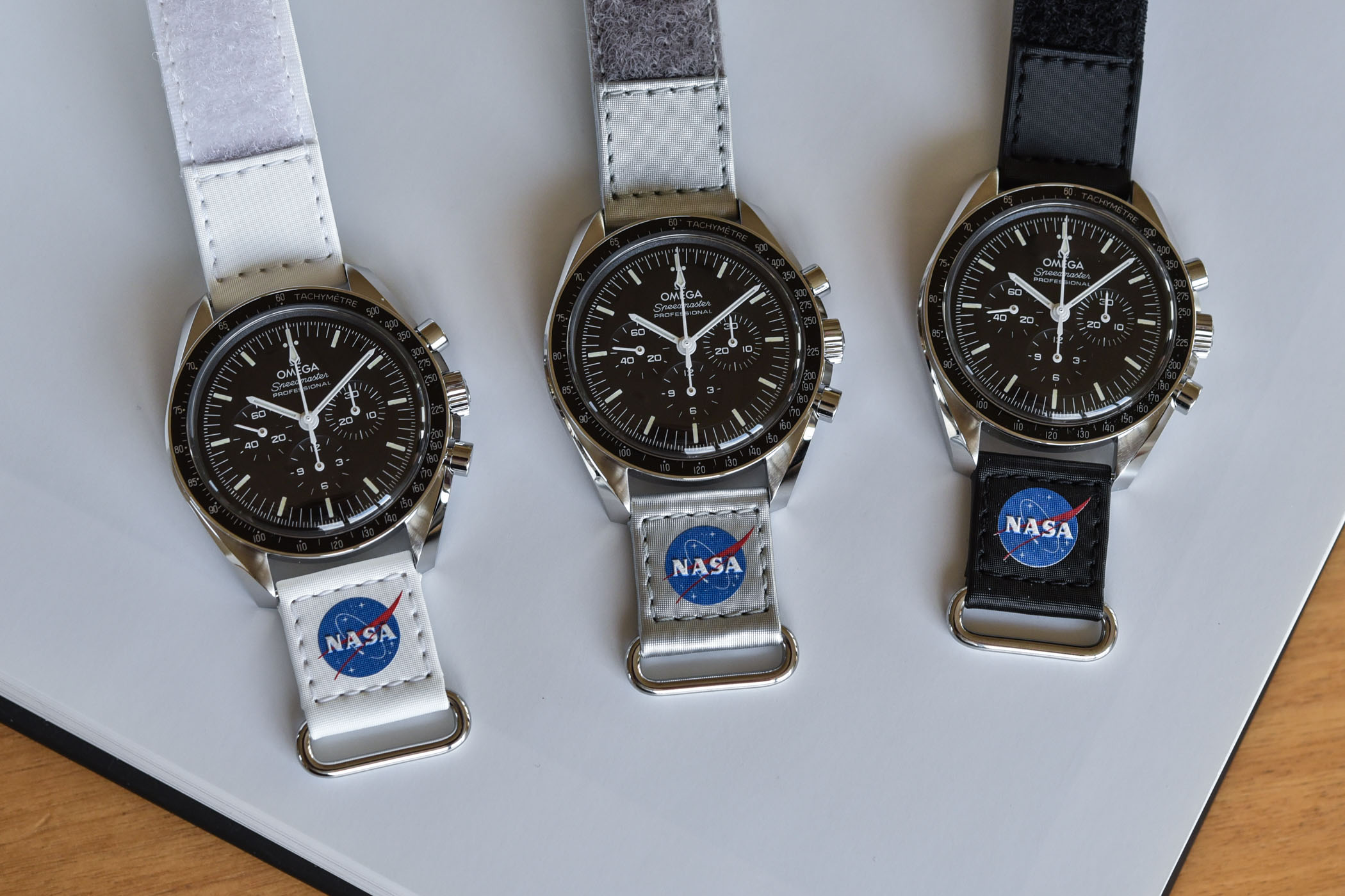
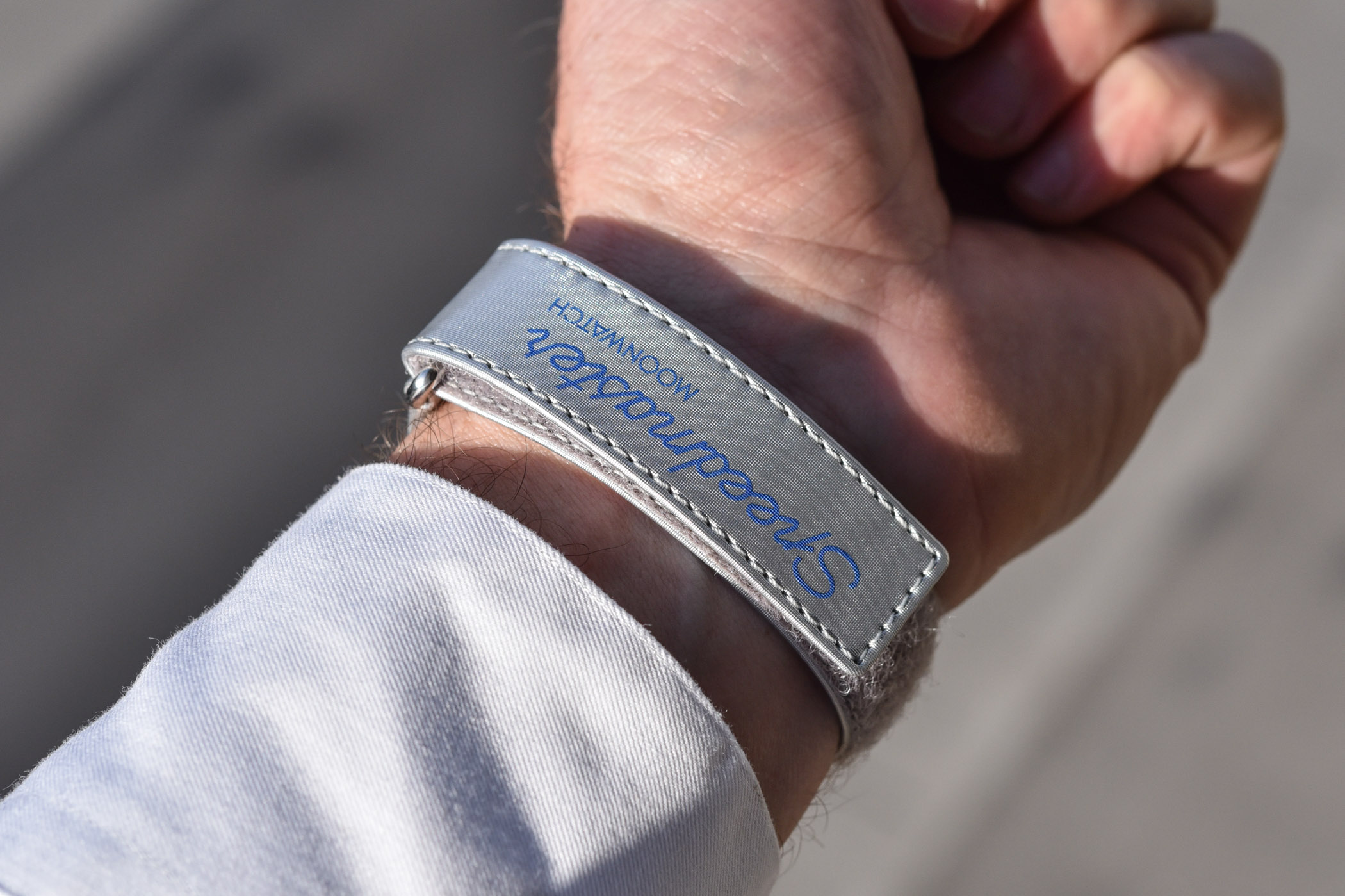
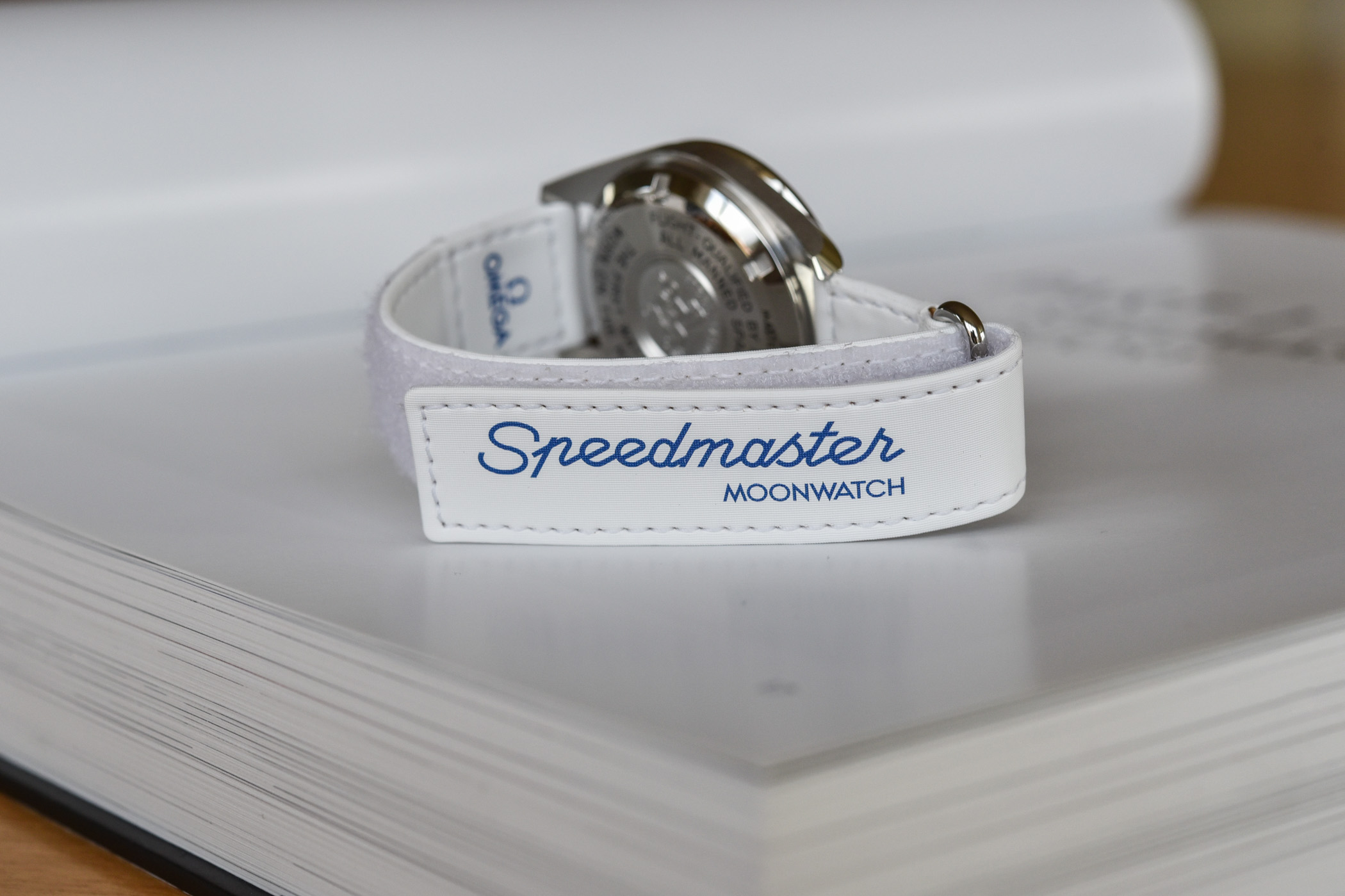
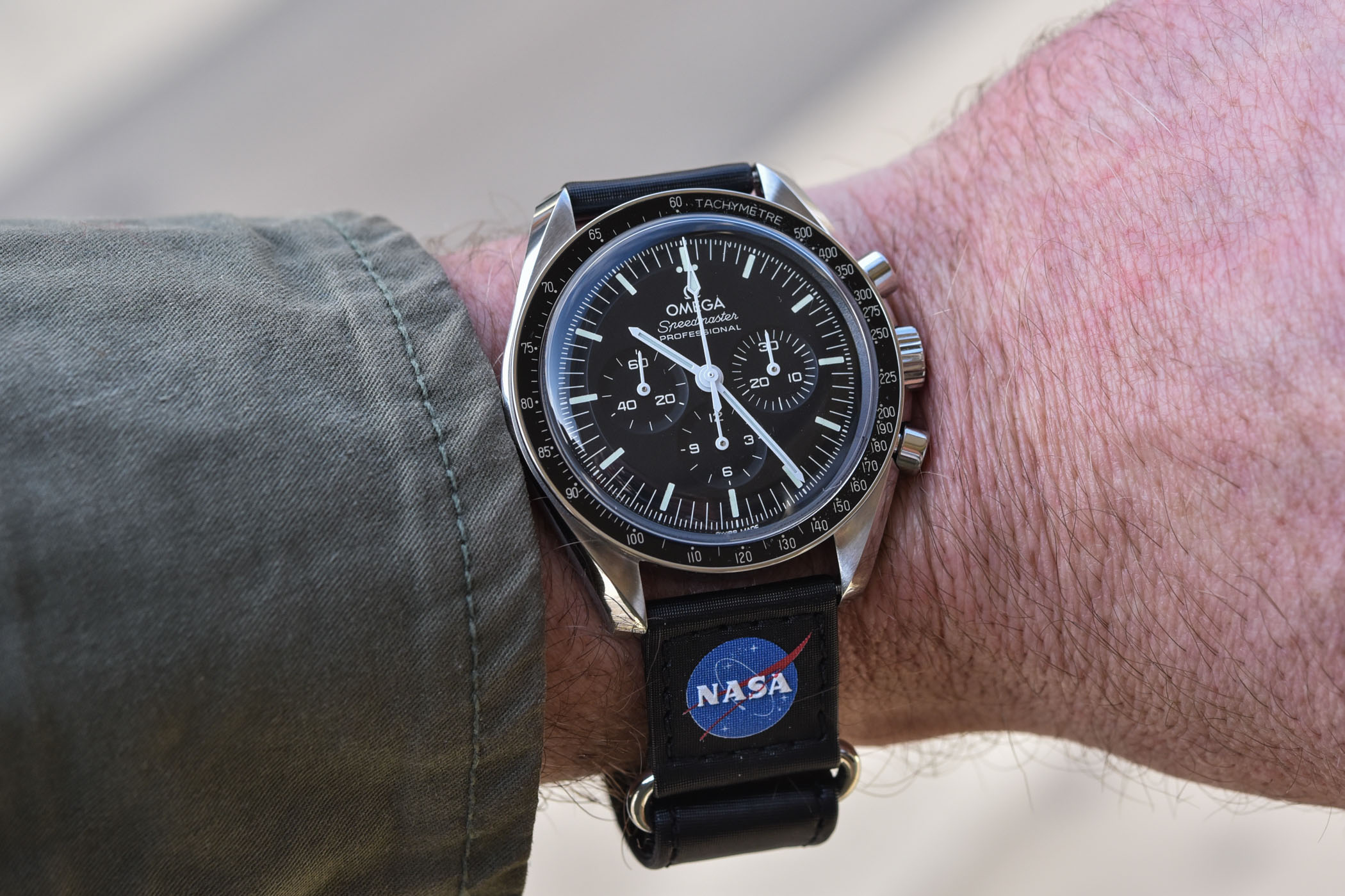
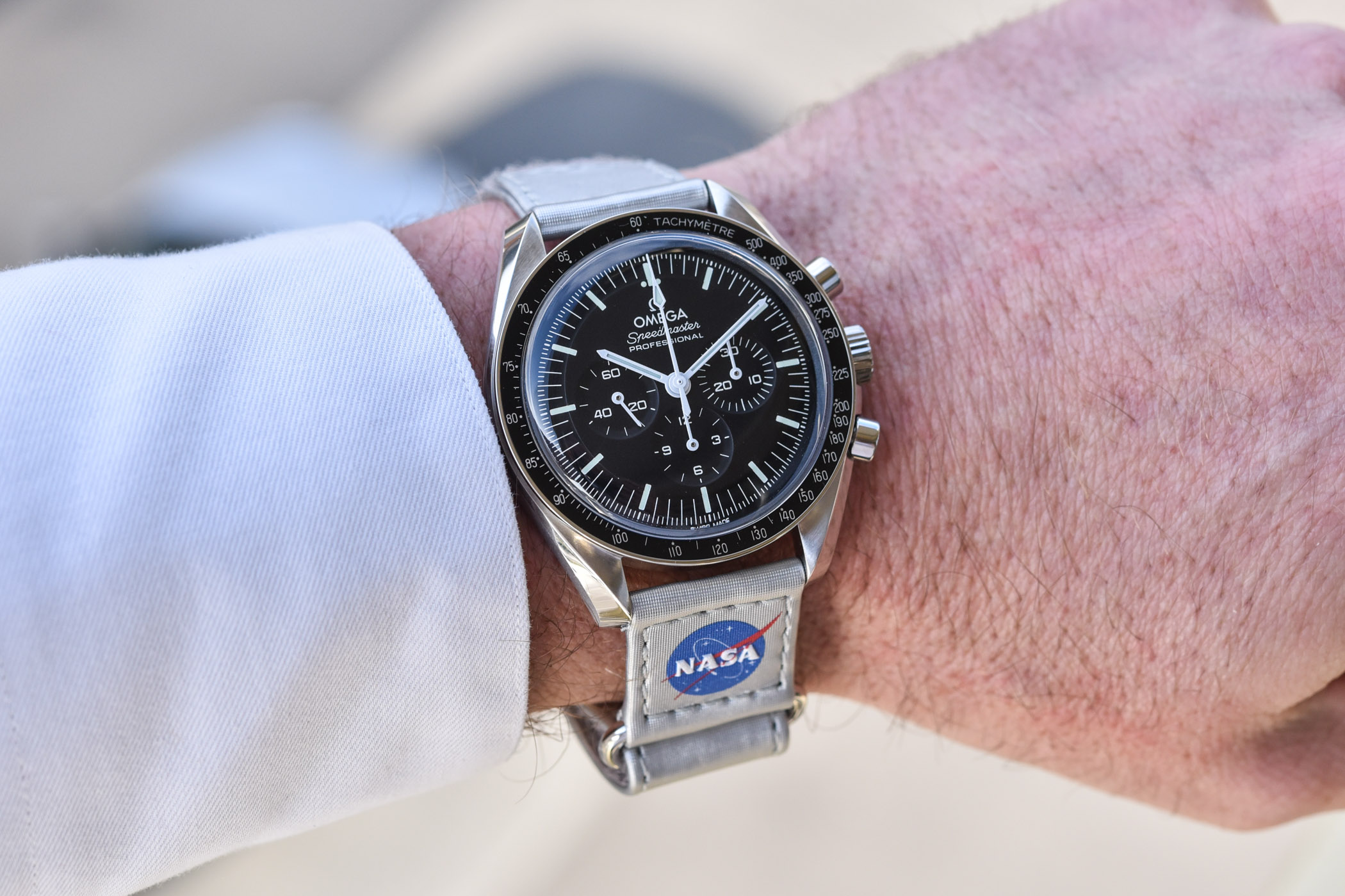

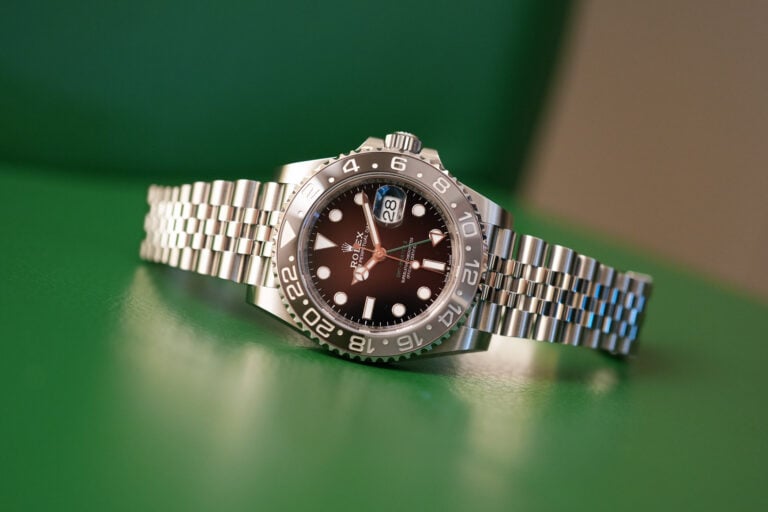
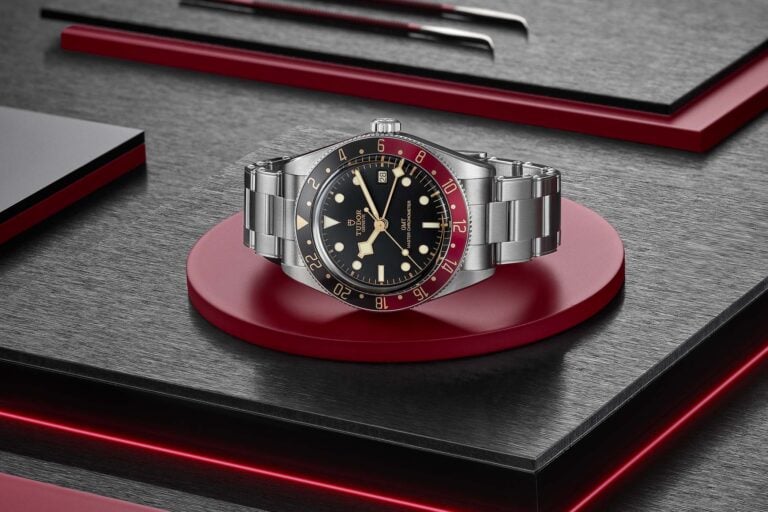
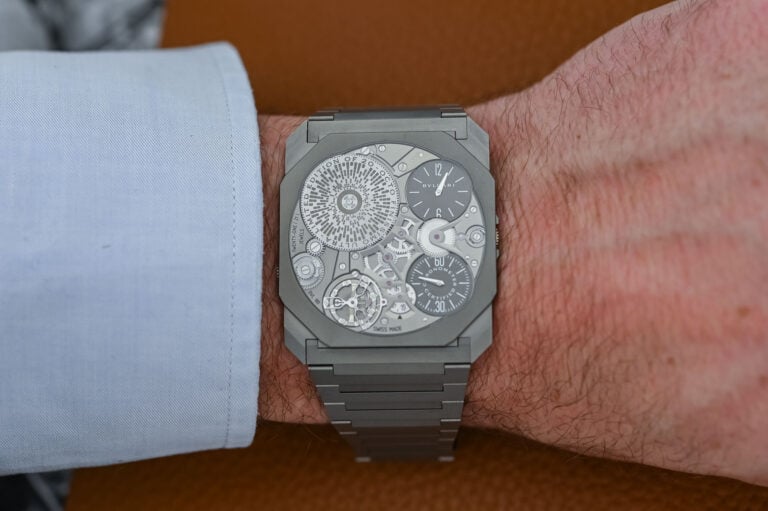
2 responses
These straps are horrible…a fake nato with Velcro? Really? I wonder what was the reason for complete removing the functionality of the strap. These basically are nothing more than fashion straps. SMH.
True, it’s horrible. No its not a fake NATO; It’s the result of NASA being unable to effectively manage space development technology without unlimited funds and very specific goals, not means, from a Congress that doesn’t change its mind. In 2022 the world is supposed to watch with ?admiration? ?disgust? as NASA launches a luge 1970’s technology disposable rocket years and billions of dollars behind schedule.
This strap should be the example used to show why NASA, not the contractors that it employs, should be blamed for cost overruns and delays that have little if any value. The astronaut’s watch straps are NASA’S $10,000 toilet seat lids – but with advertising.
For comparison to the NATO strap. Its sub-strap design is redundant; what matters is the wrap around design. The wrap around is needed because of watches with poor quality mechanical engineering. Spring bars and random design watch lugs are accepted by ignorant consumers across the world. If torsion pin bars or screw pins were used with through-hole lugs, the failure points would be the watch strap or the case material. In any case the sub strap is redundant and the cases of NASA instruments worn by astronauts don’t fail like those of consumer watches. It’s their contents that fail. Omega wasn’t chosen just for its accuracy, but the integrity of its cases. Once established it had an advertising and use agreement with NASA – NASA gets “free” watches and accessories forever.
The best part is one that isn’t needed. The “NATO” strap has a two-piece buckle with holes a sub-strap whose utility is dubious and 3 keeper rings..
The actual original NASA prototype strap was designed in under an hour by one engineer who never got credited. It was fabricated that night on a home sewing machine.
It was made from just a half length velcro mating set and a retaining loop. The two pieces were shaved at their ends and the looped piece in its middle to permit joining them reversed to produced the needed length, and the clearance needed for the lug bars.
Compared to the NATA strap, it ditched the sub-strap, the buckle, the holes and two keeper rings,turning the remaining ring into the adjuster. Only two “stitching” operations were needed. for attaching the retainer loop and the mid-length join.
That simple 100% working $150 strap (1 hour of engineering plus $50 in parts and labor) was turned into a project that involved a project manager, two other engineers (one at Omega) and 4 months of approvals to complete. The binding tapes used to secure the base of the strap to the pin bar and the end was a frill to let Omega and NASA put advertising on it.
The $150 design’s “improved” NASA band version cost consumers and taxpayers >$50,000 to “design” and >$500 each to build into NASA’s inspected and approved straps.
The new strap is even more over-designed with a second straplet at the end that adds no utility, just emphacizes the advertising.